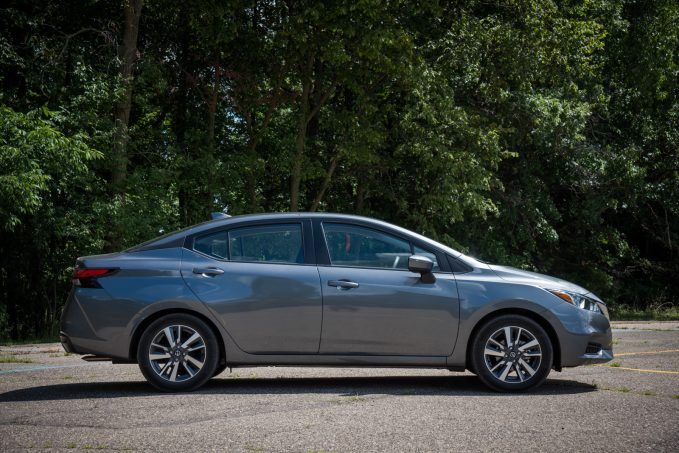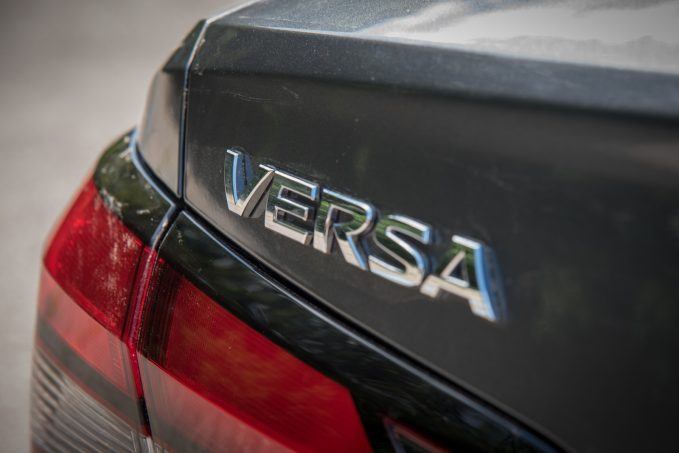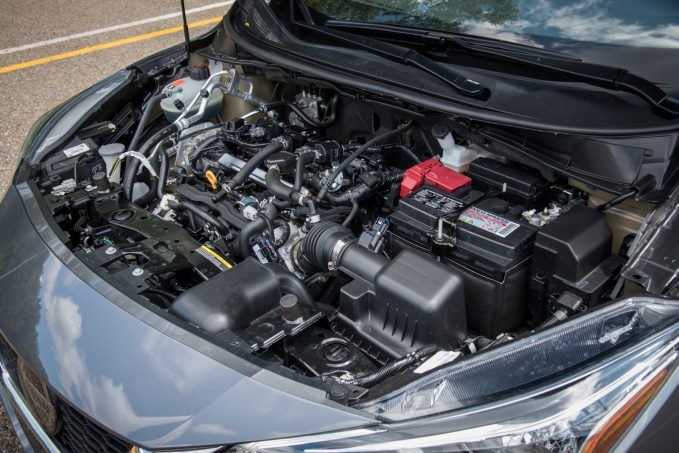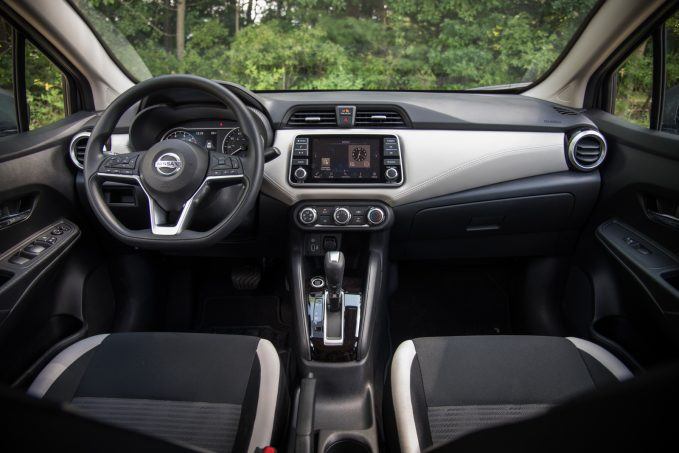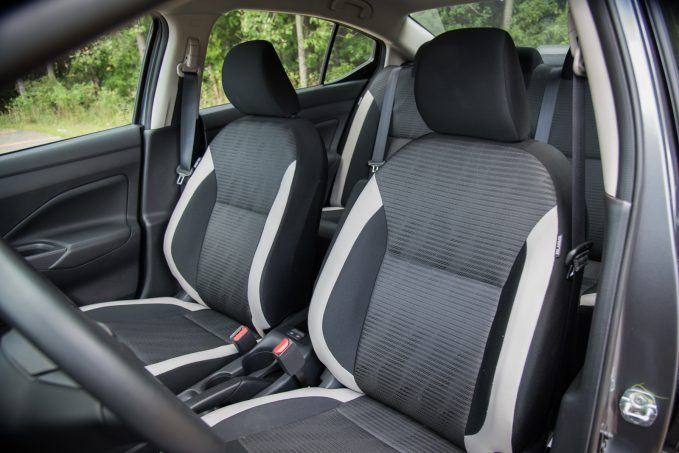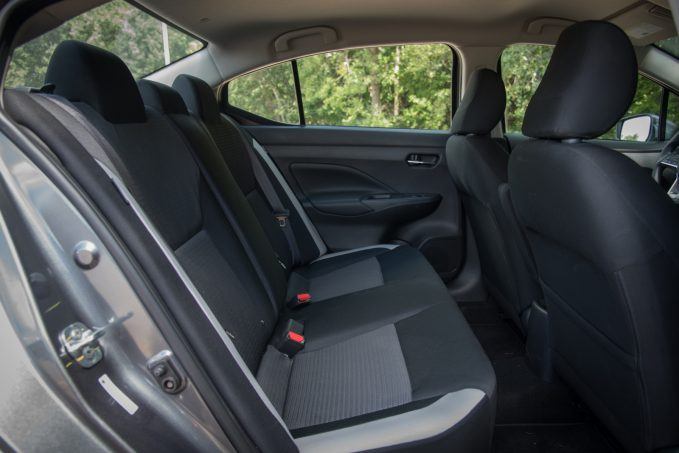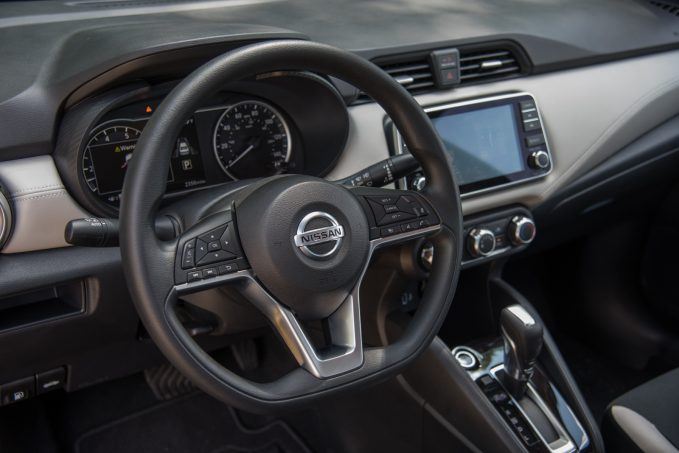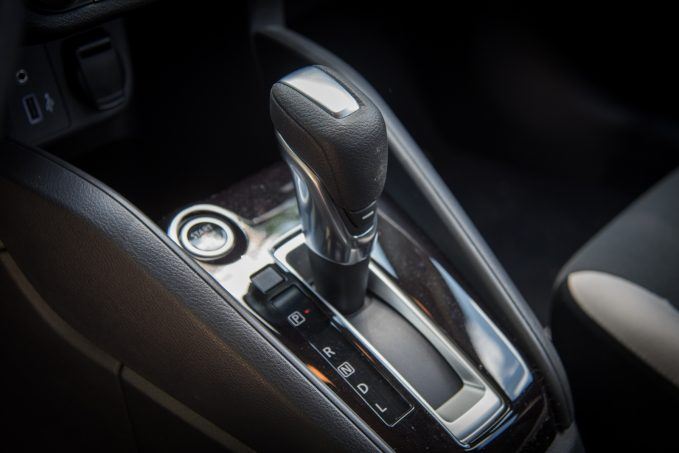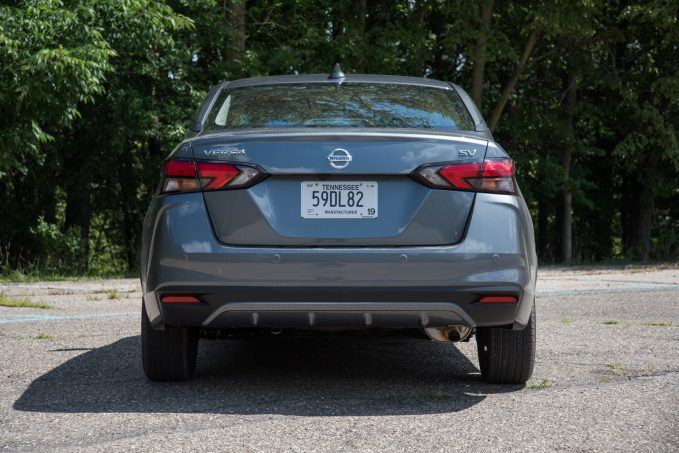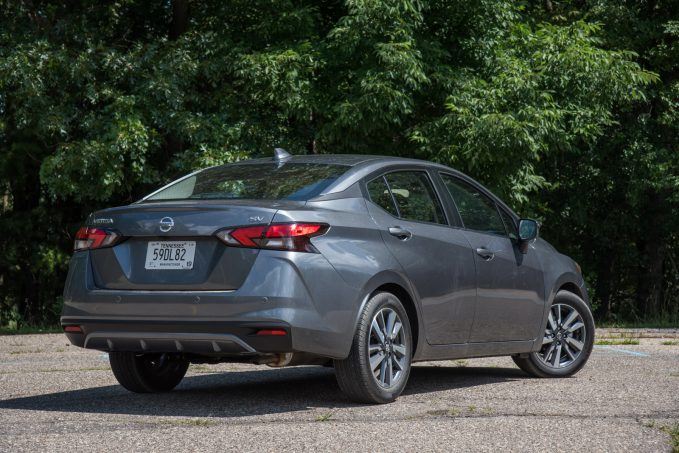No, the Nissan Versa sedan is not terribly exciting.
If, on the off chance, you were expecting this value-focused nameplate to offer dramatically more smiles per gallon following its total redesign for 2020 you’ll probably be sorely disappointed. Still, what this four-door lacks in joy is more than made up for in the amount of value it provides.
As always, the Versa remains a non-nonsense car real people can actually afford. Case in point: the base price. Including $895 in delivery charges, you can pick one of these machines up for a mere 15 grand and change ($15,625, including $895 in delivery fees) making it Nissan’s most affordable model in the U.S. Canadian customers can grab a Micra hatchback for even less, a whisker more than $12,000. The midrange Versa tested here checked out for less than $19,000. Heck, most people these days probably spend more than that on app-store downloads every year.
The Standard (Equipment) Bearer
This car’s standard equipment list is longer than a receipt from CVS. Even base models come with air conditioning, Bluetooth, three USB ports and a 7.0-inch color infotainment display. Power windows and locks, cruise control, push-button start and even Nissan’s Easy Fill Tire Alert system are also included at no extra charge.
When you factor in the Versa’s spacious and reasonably well-trimmed cabin, plus its strong fuel economy, you end up with a car that’s surprisingly agreeable, unlike other bottom-feeding models of the past that seem to relentlessly remind you of all the mistakes you’ve made in life.
The Basics
Get the Flash Player to see this player.
callPlayer(xml_url,"A5Tdvi9cc_Y","galleryPlayer_1","640","390","0"); On the subject of adversaries, Versa competes with small cars like the Toyota Yaris and Hyundai Accent, but it also rivals many good used models. If you want a full warranty and something factory fresh that hasn’t served as a rental car or had someone’s dog throw up in, then this is a good option.
SEE ALSO: 2018 Nissan Kicks Review
Keeping things simple, the 2020 Nissan Versa is offered in just three trim levels: S, SV and SR. Aside from a couple premium paint colors, the sole option is a $300 convenience package, which is only available on the top-shelf model. It gets you heated front seats and intelligent cruise control.
Technical Highlights
Dimensionally, the all-new Versa is slightly larger than the previous generation, about 1.6-inches (41 mm) longer and 1.8-inches (46 mm) wider, though its overall height has dropped by up to 2.3 inches (58 mm) depending on trim level.
Nestled behind that V-motion grille is a Gen3 1.6-liter four-cylinder, the sole engine offered. It’s a real spitfire, too, rated at 122 horsepower and 114 pound-feet of torque. It can be paired with a five-speed manual transmission in the base S model, though a continuously variable automatic is standard on SV and SR trims. This transmission features D-step logic, which simulates gearchanges for less engine droning.
Grab a Versa with three pedals and you should get 27 miles per gallon (estimated 8.7 l/10 km) city, 35 (estimated 6.7 l/10 km) highway, 30 (estimated 7.8 l/10 km) combined. The CVT makes this car much more efficient, delivering 32, 40 and 35, respectively (estimated 7.4, 5.9, 6.7 l/100 km).
SEE ALSO: 2019 Nissan Pathfinder Review
Moving rearward, the Versa offers an impressive 14.3 cubic feet of trunk space. But what is that in real-world figures? Well, you can easily fit six 12 x 12 x 16-inch (305 x 305 x 406-mm) cardboard boxes in there, with room on top of them for even more luggage. If you fold the 60/40-split rear backrests down, the car will accommodate a whopping 17 of these corrugated containers! Just don’t expect to see anything out the rear window.
A bonus, the car’s trunk opening is HUGE, measuring about 36 inches (914 mm) wide by 17 (432 mm) tall. The lift-over height is also quite low at roughly 26 inches (660 mm), however, the Versa lacks an external trunk release, meaning you’ve either got to pop it from inside the car or use the key fob, which quickly gets annoying.
The Inside Story
This Nissan’s versatility is remarkable, but perhaps its most impressive achievement is that nothing about its interior is scandalously cheap. The previous generation felt kind of like a paper plate. Use it once and toss it out, but no more.
The overall materials quality is perfectly fine, even down low on the door panels and up at the headliner, places where pinched pennies are easy to spot.
Yes, there’s still plenty of hard plastic. The dashboard and doors are almost exclusively rigid polymer, but at least it’s all nicely grained. The dash’s large swath of stitched vinyl softens things a bit.
Comfort is something of a mixed bag. This driving position is not great. The body-structure intrudes on foot space, plus the brake and accelerator pedals are waaay too close, meaning lankier drivers’ legs are awkwardly splayed. Not good.
Also, why does the driver’s seat have a weird single armrest? Were Nissan designers inspired by some old conversion van? Ideally, it would just have a center console with a nice padded lid like practically every other vehicle has.
In the back, you’ll find elevated, theater-style seating that gives passengers a great view of the road ahead. There’s also plenty of leg and headroom, though again, a center armrest is absent. Hey, you’ve got to cut corners in some places to keep prices this low.
SEE ALSO: 2019 Nissan Leaf Plus Review
The standard, mechanically operated climate controls are a bit stiff to use, but at least the infotainment system is colorful and straightforward. It’s reasonably snappy, too.
Pushing the envelope, Nissan Safety Shield 360 is standard on SV and SR models. It includes fancy features like automatic emergency braking with pedestrian detection, rear automatic braking, lane-departure warning, automatic high beams, blind-spot monitoring and rear cross-traffic alert. These are features you can’t get on many used cars, even if they’re just a few years old.
The Drive
From value pricing to fuel economy, generous interior space to available driver-assistance tech, there’s a lot to like about the Versa, but its downsides become apparent as soon as you start driving. Simply put, this car is not inspiring. But, again, what do you expect for the price?
Punch it from a standstill and you’re rewarded with adequate acceleration and nothing more, the small four-banger always churning away. At certain time
s a slight whining sound is emitted by the drivetrain, likely coming from the CVT. As for zero-to-60 performance, we clocked the Versa at an entirely adequate and-perhaps-faster-than-you-might-expect 10.7 seconds, the average time after several runs.
Acceleration is fine in the Versa, at least unladen, but its biggest dynamic weakness is the steering. It’s dead, as lifeless as the surface of Mars. The wheel gives you a rough approximation of where you’re headed but that’s about it.
Surprisingly, the Versa’s refinement is remarkable. Its interior is almost spookily quiet for a car in this segment. Seriously, it’s practically like a library in an anechoic chamber that’s built into an underground bunker. Wind, tire and powertrain racket are practically nil.
SEE ALSO: 2019 Nissan Titan Review
Matching its luxury-car quietness is the Versa’s supple ride quality. This comes courtesy of MacPherson struts up front and a torsion beam at the back, a pretty standard arrangement, especially in this vehicle segment. The twist axle is fine, exhibiting no noticeable downsides. Sometimes with this suspension design you’ll feel a bit of tail wagging while traversing bumps but that’s really not the case here; the car remains planted, even over rough pavement.
The Verdict
The 2020 Nissan Versa sedan is a mostly likable back-to-basics small car. Really, its plusses outweigh the handful of downsides.
This vehicle’s available driver-assistance technology, hushed interior, value pricing, fuel efficiency and cabin roominess are all commendable, though its Novocain-injected dynamics, uncomfortable driving position and generic styling do leave something to be desired.
Still, this example checked out for just $18,745 including $895 in deliver fees, making it a veritable bargain in today’s world where the average new-vehicle transaction price is estimated by some to be around 37 grand! So, if you don’t want to go the used-car route, if you’d rather have something factory fresh with a warranty and you don’t need anything super fancy, the Nissan Versa might just fit the bill.
Discuss this story on our Nissan Forum







